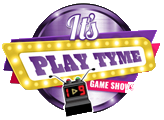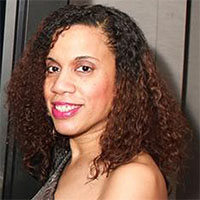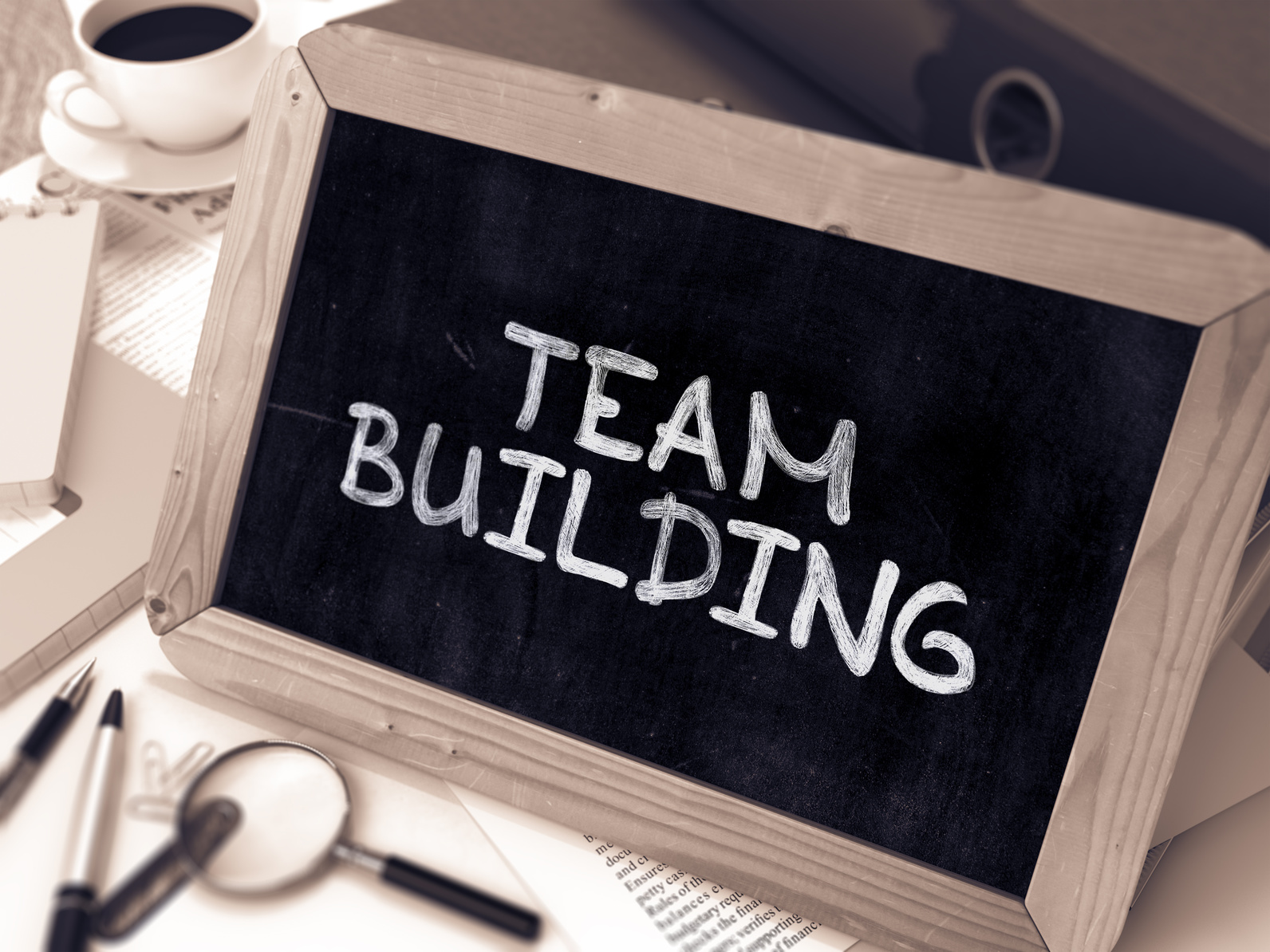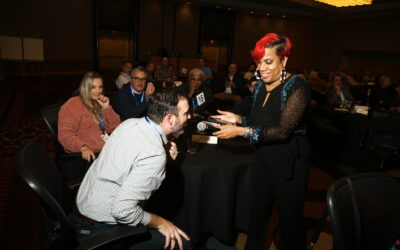Have you seen how top schools have teachers working together smoothly? In today’s world, how well teachers get along can really affect a school’s success. With the challenges of pandemic learning gaps, administrative tasks, and new technologies, teachers need each other’s support more than ever. Teacher Team-building exercises do more than just fill up professional development days. They build strong relationships that help teachers get through tough times. When teachers really connect, they communicate better, feel less stressed, and come up with new ways to teach.
Strong teams in schools have a big impact on students. Schools with united staff see better student results, better classroom management, and more consistent teaching across grades.
Using game show ideas is a fun way to build these important connections. They need little setup but have a big effect on staff morale. These activities turn regular meetings into chances for real connection and boost team building participation even among those who might not want to join in.

Game Shows for Team Building
Key Takeaways
- Strong educator collaboration directly improves student outcomes
- Team-building activities reduce teacher burnout and improve retention
- Game-based exercises require minimal preparation but deliver significant results
- Regular collaborative activities transform school culture over time
- Team building helps staff navigate educational challenges more effectively
- Improved communication among educators creates consistency for students
Why Teacher Team Building Exercises Matter Now More Than Ever
The way we teach has changed a lot, making team building for teachers more important than ever. Schools now face new challenges like helping students catch up after the pandemic and dealing with their emotional needs. Teachers must also handle more work and keep up with new technology.
Studies show that over 55% of teachers feel burned out, a 15% jump from before the pandemic. This shows why strengthening teamwork in schools is not just good—it’s necessary.
When teachers work alone, problems get worse. But schools that focus on teamwork see big improvements in teacher happiness and student success.
Team building does more than just make teachers feel good for a moment. Schools that do team activities regularly see:
- 30% fewer teachers leave their jobs
- Better communication between departments
- Smarter ways to solve student problems
- More sharing of ideas and resources
- Being more ready for big changes
Today’s schools need teams that can work well together. When teachers support each other, they build strong networks against stress. One of the most effective ways to strengthen those bonds is through teacher team-building exercises that go beyond the usual icebreakers.
These bonds don’t form on their own. Schools need to make time for team building to help teachers connect.
Investing in team building brings real benefits. Schools that focus on teamwork see teachers happier and more likely to stay. One study found that schools with strong teamwork had 22% happier teachers and 18% more kept their jobs.
Team building also saves money. Hiring and training a new teacher can cost between $9,000 and $21,000. Keeping teachers through team building is a much smarter financial move.
But it’s not just about money. Teachers who feel supported and connected are more creative and enthusiastic. This makes students more engaged and successful.
Today’s teacher team-building exercises are different because they focus on solving real problems. They help educators connect in meaningful, lasting ways.
Investing in teamwork makes schools better in many ways. From more productive meetings to more creative lessons, the benefits spread throughout the school.
As education keeps changing fast, schools that focus on teamwork stay ahead. Team building is not a luxury—it’s a must for schools to succeed.
Game Show-Style Teacher Team Building Exercises
Looking for the perfect icebreakers for teachers? Game show-style events might just be the secret sauce your school needs. These familiar formats tap into nostalgia. They create an environment where collaboration happens naturally and everyone feels comfortable participating.
Game shows work exceptionally well in educational settings. They mirror what teachers already know and love. The structured rules, friendly competition, and emphasis on thinking quickly align perfectly with educators’ natural strengths.
The best team building activities don’t feel forced. They create authentic moments of connection while people are simply having fun together. Game shows hit this sweet spot perfectly.
What makes game show formats effective is their ability to level the playing field. In a school environment where hierarchies can sometimes create barriers, these activities put everyone on equal footing. The department head and the new teacher might find themselves as teammates, collaborating to solve puzzles or answer trivia questions.
These staff bonding games also accommodate different personality types. Introverted teachers who might dread traditional “share something personal” ice breakers often thrive in game show settings. The structure provides a comfortable framework while allowing genuine connections to form.
From a practical standpoint, game show-style events solve many common team-building challenges. They require minimal preparation, can be scaled for any group size, and typically need few materials. This makes them ideal for professional development days, faculty meetings, or after-school gatherings when time and resources are limited.
The problem-solving element of these activities directly translates to classroom benefits. When teachers collaborate to overcome game challenges, they’re practicing the same creative thinking they’ll need when facing unexpected situations with students. These shared experiences create a reservoir of goodwill that teachers can draw from when real challenges arise.
| Aspect | Traditional Team Building | Game Show Approach | Benefit to Teachers |
|---|---|---|---|
| Preparation Time | Often extensive | Minimal | Respects teachers’ busy schedules |
| Participation Level | Variable, often uneven | High and consistent | Everyone feels included |
| Comfort Factor | Can feel forced or awkward | Familiar format reduces anxiety | Creates psychological safety |
| Skill Transfer | Sometimes unclear | Direct application to the classroom | Improves collaborative problem-solving |
| Enjoyment | Highly variable | Consistently positive | Builds positive associations with team activities |
The best ice breakers for teachers create moments of genuine connection while respecting their professionalism and time constraints. Game show formats accomplish this by providing just enough structure to make participation comfortable while allowing authentic personalities to shine through.
Schools that implement these activities often report improved communication between departments. They also see increased willingness to collaborate on curriculum and a more positive overall climate. The shared vocabulary and inside jokes that emerge from these experiences continue to strengthen bonds long after the activity ends.
As we explore specific game show-style activities in the next section, keep in mind that the goal isn’t just fun (though that’s important too). These carefully designed experiences build the foundation for a more cohesive, creative, and resilient teaching team ready to tackle whatever challenges the school year brings.
Must-Try Teacher Team Building Exercises (Game Show Edition)
Want to energize your teaching staff? These five game show-style team-building activities are a hit with little prep. They’re designed to strengthen faculty rapport and foster a positive school culture. The fun of these activities lies in making meaningful connections through playful competition.
#1 – Face-Off Feud – Teacher Edition
This game show adaptation sparks excitement and boosts communication skills. Divide teachers into two teams and prepare education-themed survey questions. These questions should resonate with their daily experiences.
Sample survey questions might include “Top answers students give for not completing homework” or “Most common items found in a teacher’s desk.” The familiar format lets teams dive into the action without needing much explanation.
For materials, you’ll need:
- A whiteboard or digital display for answers
- Pre-surveyed responses (survey other teachers or staff beforehand)
- A buzzer or bell for teams to signal when they want to answer
This activity breaks down barriers between departments. Teachers discover shared experiences and laugh together over common classroom situations. This helps normalize challenges and builds solidarity among staff.
#2 – Minute-To-Win-It Challenges – Classroom Edition
These quick challenges bring instant energy and use common classroom supplies. Set up 5-6 stations with different 60-second challenges. Teachers can rotate through stations individually or in small teams.

- Paper Clip Chain Race: Create the longest chain of paper clips in 60 seconds
- Stack Attack: Build the tallest tower using dry erase markers
- Sticky Note Shuffle: Transfer 20 sticky notes from one surface to another using only one hand
- Pencil Roll: Roll pencils across a table to land within designated zones
- Cup Flip Challenge: Arrange and flip plastic cups in a specific pattern
These challenges create instant connections. Teachers who rarely interact find themselves cheering each other on. The shared experience of tackling simple yet tricky tasks levels the playing field.
#3 – Academic Showdown Trivia Mania
This trivia competition celebrates the diverse knowledge within your faculty. Create balanced teams that mix subject areas, experience levels, and departments. This maximizes relationship building.
Develop question categories that allow different teachers to shine:
- Education History: “In what year was the Department of Education established?”
- Teaching Methodologies: “What learning theory did Jean Piaget develop?”
- Pop Culture in Education: “What fictional teacher appears in the Harry Potter series?”
- School-Specific Knowledge: “Who was our Teacher of the Year in 2018?”
This activity fosters a positive school culture by validating diverse expertise. Teachers gain respect from colleagues for their unexpected knowledge.
#4 – Word Play – Wheel of Fortune
This beloved word-guessing game is perfect for team building. Create a simple wheel mechanism and develop education-themed word puzzles. This activity builds vocabulary and encourages creative thinking and teamwork.
For maximum engagement, Wheel of Fortune for team building should include categories relevant to educators. Categories like “Teaching Jargon,” “Educational Theories,” and “Things Found in a Classroom” are popular. Teams take turns spinning, guessing consonants, buying vowels, and solving puzzles.
The collaborative nature of this game fosters teamwork. As teams work together, they develop a shared language and appreciation for each other’s knowledge. The familiar format means minimal explanation time and maximum engagement.
#5 – Commercial Break Challenge
This exercise turns teachers into marketing teams. Divide the faculty into small groups and give each a bag with random objects. Each team has 15 minutes to plan and one minute to perform a commercial about what makes your school special.
The randomness of the objects forces creative thinking, while the school-focused content reinforces positive messaging. This activity is great for:
- Beginning of the year kickoffs
- Reinvigorating mid-year motivation
- Celebrating school achievements
The resulting commercials are hilarious and boost school pride. Teachers discover hidden talents and gain fresh perspectives on their school community.
Each of these game show-inspired activities fosters authentic connections among faculty. By moving beyond traditional meetings, teachers build relationships that improve collaboration. Just 15-30 minutes in these activities can significantly enhance school culture and staff morale.
Real Schools, Real Results (NJ + NYC Testimonials)
Teachers from real schools are seeing real changes. They use game show-style activities in their professional development. This is happening in classrooms and staff lounges across the Northeast.
At PS 118 in Brooklyn, Principal Maria Sanchez faced a big challenge. Her staff was divided between old and new teachers. “Communication was our biggest hurdle,” she says. “Department meetings felt tense, and collaboration was minimal at best.”
Then, they started using game show activities during three professional development days. The results were amazing.
“We did a scavenger hunt for our teachers. I put them in teams, and they ran around and had to solve the clues and send pics to prove they figured it out. We had 10 clues plus a bonus, and it took like 30 minutes. The laughter in the hallways that day changed something fundamental in our school culture.”
Six months later, Sanchez saw big changes. There was a 40% increase in cross-department collaboration. Staff meeting participation also improved a lot. The key was making team building a regular thing, not just a one-time event.

In suburban New Jersey, Riverdale High School took a different approach. With 87 staff members and 1,200 students, Assistant Principal Tom Jenkins worried about cliques.
“We did Cover Your Cups, a cup flipping game, and started with 8 teams and then had one grand champion team. It took about 20 minutes, and the staff had a BLAST! What surprised me most was seeing the quiet English teacher high-fiving the boisterous gym coach. These are people who barely spoke before.”
The impact went beyond the game itself. Jenkins says communication improved naturally after the game. “The conversations that started during the game continued into curriculum planning sessions.”
At Charter Academy in Newark, a smaller school with 32 staff members, the challenges were different. Principal Keisha Williams describes a dedicated but exhausted team facing burnout after two tough years.
“We needed something that would rebuild trust and camaraderie without feeling like another task on their plates,” Williams says. They started a monthly “Game Show Friday” with different activities each time.
The results were clear across many schools:
- 73% of teachers felt more connected to colleagues outside their department
- Staff meeting attendance increased by an average of 12%
- Voluntary participation in curriculum development committees rose by 28%
- 89% of administrators noted improved problem-solving during actual work challenges
- Teacher retention improved by 7% year-over-year across surveyed schools
PS 204 in Queens initially faced skepticism from some staff. “The eye-rolling was real,” laughs Principal David Chen. “But we started small, with just 15 minutes, and built from there as people saw the benefits.”
The best schools linked the games to real work challenges. At St. Mary’s Academy in Jersey City, they made Academic Showdown Trivia relevant to school policies and strategies.
“It became both fun AND functional,” reports curriculum director Janelle Peters. “Teachers were learning while playing, which made the information stick. Now when we discuss intervention strategies, everyone has the same baseline knowledge.”
Building trust and camaraderie takes effort, but it pays off big time. Schools see better teaching teams, more problem-solving, and better student outcomes.
As one Newark teacher said, “I’ve been through countless professional development sessions in my 17-year career. These game show activities are the first ones that actually made me feel like part of a team.”

game-shows-ct
How to Plan Your 60-Minute Team Building Session
Planning a team-building session is key to success. Teachers have busy schedules, so every minute counts. A 60-minute session is the perfect length to make an impact without taking too much time.
Creating a great session doesn’t need a lot of resources. It does, though, require paying attention to important details. Here are some steps to help you plan a memorable event for your staff.
Choose the Right Timing
Choosing the right time for your session is important. It affects how much people participate and how excited they are. Here are some options:
- Before school starts (early morning energy)
- After dismissal (when daily pressures are behind)
- During scheduled professional development days
- As part of a faculty meeting (replacing routine announcements)
The best time depends on your school’s culture and schedule. Morning sessions can be energizing. Afternoon sessions are more relaxed, without the stress of classes coming up.
Select Activities Based on Team Needs
Not all activities are the same. Choose ones that fit your team’s goals:
- Communication challenges for departments that need better coordination
- Problem-solving exercises for curriculum development teams
- Trust-building activities for newly formed teaching teams
- Creativity boosters for instructional design groups
The most successful team building doesn’t just entertain—it addresses real workplace dynamics and creates lasting change in how people interact.
Sample 60-Minute Agenda
Having a plan makes everyone feel more comfortable and productive. Here’s a good format for your session:
- Welcome & Framing (5 minutes) – Explain the purpose and expected outcomes
- Icebreaker (10 minutes) – A quick, low-pressure activity to set the tone
- Main Activity (30 minutes) – Your featured game show or team challenge
- Reflection (10 minutes) – Guided discussion about insights gained
- Application (5 minutes) – How to apply learnings to daily work
For a ready-to-use framework, check out this template for a fun 60-minute team building that takes the guesswork out of planning.
Prepare Your Environment
The setup of the room can greatly affect how well people participate. Think about these things:
- Room arrangement that encourages interaction (circles or small groups)
- Comfortable temperature and adequate lighting
- Minimal distractions from outside noise or interruptions
- Easy access to the materials and technology needed
For bigger groups, divide into smaller teams of 4-6 people. This size lets everyone get involved without feeling left out.
Facilitation Tips for Success
Even the best plans need a good leader. As the session leader:
- Model enthusiasm and full participation
- Provide clear, concise instructions before each activity
- Monitor time closely but flexibly
- Have strategies ready for encouraging reluctant participants
- Prepare thoughtful reflection questions that connect activities to daily work
Some teachers might be hesitant at first. Be open about this and explain how these activities can help their teaching and students.
The best team-building activities make a real connection between fun and serious work. Make this connection clear during your reflection time to ensure lasting impact.
By following these tips, you’ll create a session that respects teachers’ time and delivers real results. Just 60 focused minutes can improve communication, teamwork, and school culture all year long.
Ready to Reboot Your Team’s Energy?
Game show-style team building does more than just entertain. It builds trust and camaraderie among staff. This helps them connect beyond their classroom walls.
Imagine teachers laughing together during Face-Off Feud or cheering each other on in Minute-To-Win-It. These moments create strong bonds. These bonds help teachers work better together, share resources, and support each other when needed.
Concerned about time? A single 60-minute session can make a big difference. Worried about money? These activities are affordable, with a big impact. And, if some staff are hesitant, start with the most fun games. Soon, everyone will want to join in.
Plan a team-building calendar that teachers will look forward to. Maybe have a game session every month. This regular effort leads to happier teachers, stronger school spirit, and better student results.
Teachers work hard every day. They deserve moments to reconnect with their love for teaching and with each other. The real question is, can you afford to ignore team building?

Game Shows for Team Building









